
Interview with Wilhelm Reinecker, Totenkopf Division, Wewelsburg, 1990.
[Above: Wilhelm Reinecker (December 15, 1926 - November 5, 2016).]
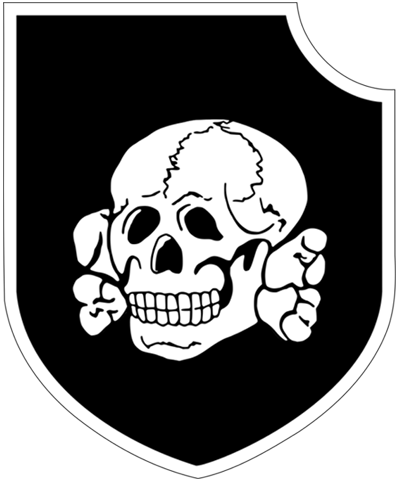
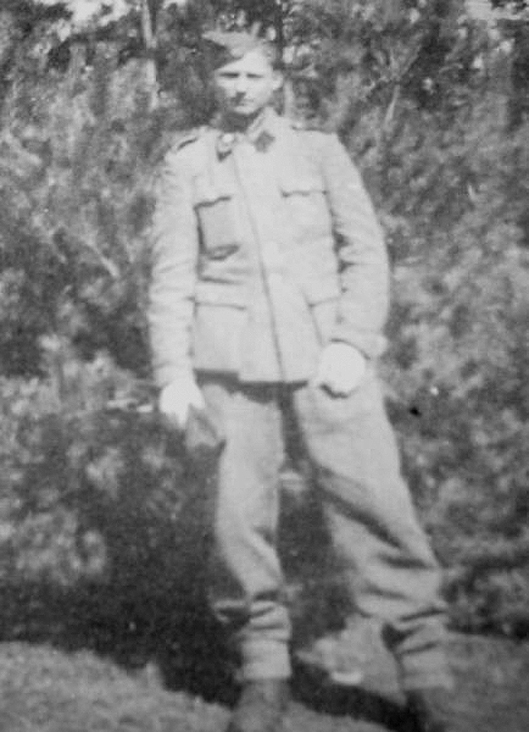

Interview with Wilhelm Reinecker, Totenkopf Division, Wewelsburg, 1990.
[Above: Wilhelm Reinecker (December 15, 1926 - November 5, 2016).]


It is nice to see you today; I wanted to write down some answers to my questions if that is OK. My first question is how did you come to be in the Waffen-SS and in the Totenkopf division?
Willi: Yes, it is nice to see you. I know you said you wanted to ask some questions, so I hope I can answer them well for you. To start with how I came to be in the Waffen-SS, and in the Totenkopf Division. I started out as a boy who had no desire for military service, I wanted to follow other paths in life.
At that age I was in the church, and thought something along church lines might be good. I was a member of the Hitler Youth [HJ] since I was 12 and they helped prepare you for what ever you thought you wanted to do. Of course when the war began, the focus shifted on preparing boys for military service, but before then it was different.
In the HJ we did a lot of work around my town, from helping old people with yard work, to helping farmers, to raising money for war widows. It was all about serving your people and being a productive member of society. We would even go on Saturdays sometimes to help clean up local church yards for Sunday service. The girls in the BDM [Bund Deutscher Mädel, or League of German Girls] did this as well.
As I said when war broke out the training was more focused on helping the war effort, like collecting goods for the front, or to be recycled. For the boys, military service was instilled in us so that when the time came we must do our duty to our nation. I had no desire to fight, so even in 1943 when the drive was on to recruit 16 and 17 year olds I was not interested.
However, something that did not escape me was the intense interest I saw the girls have for any soldier in uniform. If you wore a smart uniform like the black panzer or the Waffen-SS runes, it drew even more attention. I knew I wanted to be a part of something that the girls admired and people looked up to.
I knew that by the end of 1943 I had to make a decision, I was soon to be 18 and would be called up very soon. I had developed a keen interest in the Waffen-SS due to the elite nature they had in the National Socialist state. They were the party's military arm and had made quite a name for themselves on the battlefield. I would read in the papers of their exploits and awards they received.
I went to speak to the local recruiting office and was sent later for enlistment, I was told I would be joining the Totenkopf. When I found out they wore the skull and not the runes I was disappointed. I was told they were a very elite unit that the future security forces would come out of, but I had no desire to be a policeman.
There you have it; I went into the Waffen-SS because I knew I would be drafted.
What was your training like?
Willi: My experience was a shock, as I had never been exposed to the military way of doing things. We reported to the depot and were put on a train going to the training barracks. When we arrived the atmosphere was somewhat relaxed, a very cool-headed NCO ordered us to form ranks and march proudly through the gates of the barracks to show off to the people who had gathered.
Once we got into the yard the instructors got on us and started yelling and looking us over. I had a purple handkerchief a local girl had given me in my suit and I looked spiffy so they loved that. The senior NCO called me a ladies man after I said where I got it. That stuck all through my training.
One man was called the house mouse and had to run chores for the instructors and to make sure we did our chores. He was a student out of a political school and looked like a book worm, not a soldier. He went on to win the Iron Cross but was murdered by the Russians when the division was turned over to them in 1945.
We had a regimen of going to bed early, getting up early, eating, exercising, marching, training, drilling, lectures, eating, cleaning barracks, free time and then going to bed. I did very well with the exercise as I was pretty fit back then. I could run in my full pack with a rifle.
There was huge emphasis put on teamwork, we had races between groups of us and we had to work as a team to beat the others. Our trainers always stressed in combat that we rely on each other, there are no individuals. When you are that type of person you get others killed, and yourself. This proved to be very true in the field and saved many lives. This made us very effective and bested the enemy many times.
Everything was a competition then, it was who could be first and who would get a rest for beating the other platoons. They made it so you wanted to be first and win so you could relax for a spell. We kept this up for a few weeks and then went on to learn our specialty; I was then trained as a panzer grenadier and transferred to regiment 'Theodor Eicke'.
In training we even had Sunday services for those of us who were inclined to go, and the town priest would give blessings. Some men were not believers and wanted nothing to do with it. Many people today think the SS was a cult of pagans who hated the cross and what it stood for. That is an absurd belief by those who can not and will not see the truth for what it was.
Something I want to say on this is that in the Waffen-SS there were some who turned their back on God. They believed that the Bible was a Jewish fairy tale book and was made to foster their supremacy. I believe the opposite, and always have. The Bible is the book of the Europeans that Jewish scholars have fooled us into thinking otherwise.
It may sound odd to you but many in Europe have held this as an obvious fact for hundreds of years, since the time of the Apostles when they came into Europe to preach. It was so obvious that our ancestors never made it clear for their posterity. It never came into their minds that someday a race may come along to steal it.
It was so obvious that it dwindled as the main focus of our religion, and more and more lost sight of it. Here we are today, the Jews are now the main people of a Bible that the Europeans created and used its teachings as a compass for thousands of years. During the National Socialist time you either believed it was a Jewish book and wanted nothing to do with it, or you understood it was ours all along and that there is a case of purposeful misidentification that happened. Some remained indifferent.
More and more people have lost this idea, and the churches have all been taken over by young indoctrinated men who would think it crazy to say that the Jew has no more a right to the Bible than a piece of coal would. I believe it explains why so many of my comrades were pagan or non religious. They came to believe the Bible had no attachment to them and that it was a foreign book with foreign ideas.
So I wanted to share that with you as you asked before about religion. Most all of National Socialist Germany held a firm belief in God, and understood that this was the God of our fathers that brought us forth from the dirt. He set us aside and different from all others in the world.

[Above: Theodor Eicke cuff title.]
What was it like in Panzer Grenadier school?
Willi: It was not bad at all, we learned a little bit of the ideas in the first stage of training. The main training was relaxed; we had to stay in the barracks, but had some free time. We attended courses during the day and usually had the evenings free to do as we wished. I remember we had field training mixed with classroom training.
A Panzergrenadier moved alongside our Panzers and helped breach enemy lines, then held them open. We had to be trained on several weapons, and also for tank hunting, using the new Panzerfaust. Many soldiers wanted to be part of something mobile so they did not have to march. We had half tracks with all sorts of weapons on them, from the MG42, to anti-tank guns. I attended a school in Prosetchnitz and was there for an exciting event,
the school had T34 tanks to train on. While doing training on how to knock one out, I was running with a dud grenade bundle, threw it at the target, it broke apart and one happened to hit the school commander who was watching. His name was Kempin [SS-Standartenführer Hans Wilhelm Kempin (June 7, 1913 – November 30, 1992)-Ed.], and he walked over to me as I jumped to attention. I thought I was going to be chewed out but he laughed and said "Let's hope this doesn't happen in combat" and clapped me on the shoulder, then walked away.
Of course, the training NCO bellowed afterward "Asshole if this was in combat you would have killed a good man." I was very embarrassed and did my best the next chance I had, not missing the target. I was glad this was a short school. When this was completed I reported for full duty at the front.
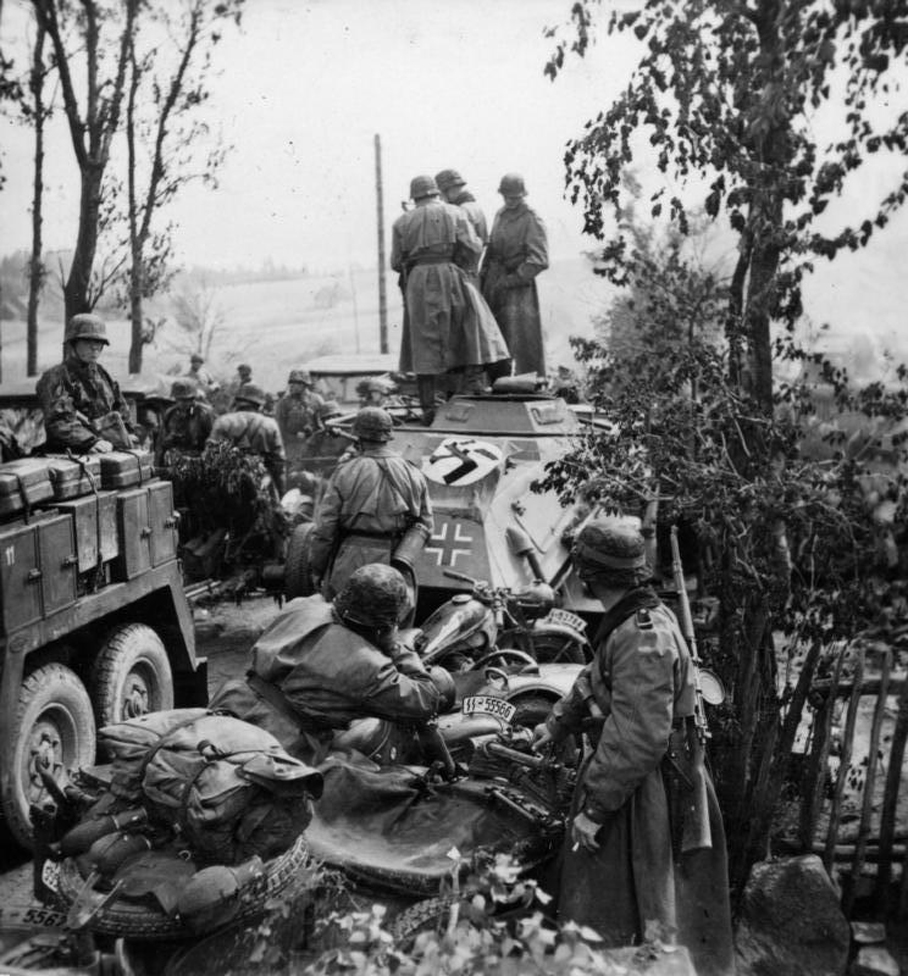
[Above: The 3rd SS Panzer Division 'Totenkopf', the modern day knights of truth and honor, confront the untold evils of communism face-to-face during Operation Barbarossa, September 1941.]
How was life like for you on the eastern front?
Willi: We were sent there in 1944 as replacement troops for the battles around Jassy on the Romanian border. By the time I arrived at the east front we had been pushed back and lost large areas of land taken in '41 and '42. We had been told Ivan was a renewed soldier with unlimited reserves.
However, we still believed we could win as we felt that we had better soldiers and equipment. I remember being scared when my first engagement was shooting at their fighter bombers who came to wish us well. Mobile flak 38s brought one down to our cheers.
I remember there were many Roma and civilians where we had camped. They were fleeing west to get away from Ivan. They begged for food or anything we could spare. There was an argument I remember seeing between our commander and a Romanian officer. They demanded fuel but we had none to give. He wanted to siphon from the staff car and was told no very sharply.
I had a chocolate bar and shared it with some boys who came begging and in turn they shined my boots. I felt guilty having them do this as we were not masters of them, but it was a fair trade, labor for hard-to-come-by chocolate. I saw my first prisoners as well, and learned there were Ivans who worked for us.
We had several whom worked as helpers who had been prisoners; they were friendly and spoke broken German. I was told we had to watch them as some had run off with food or supplies. The thought was they were selling them to the Roma. A security patrol of loyal Romanians found a camp that had a full German field stove and other equipment they were using to keep warm and fed. The commander allowed them to keep what they had, but said any further stealing would be met with hanging.
The weather was terrible I remember, it was cold and rainy which was actually a blessing as it slowed Ivan down. We had time to build up strength and make positions and to write home. This was a good time for me to come to the 6th regiment. I had to do a lot of chores for the old hares -- those who had been at the front for a long time. They would tell us stories of the fighting and it kept us up at night.
By the time Ivan attacked us I felt like I was ready and had learned a lot from my comrades. We ended up moving back for better ground and to build better positions. I had my first run-in with the partisans here as well. They came up from the south and started attacking us from behind. They destroyed a supply train and then hit trucks by us.
I had to help search for any supplies we could use, and when we started looking around we found a wounded partisan who was on his last legs. He was shot in the lung and could barely breathe. Our medic looked him over and then spoke to our Scharführer who told us to go on. We then heard a pistol shot.
I remember the battle well -- it was my first! We came under fierce attack by a whole armor corps, and our Panzers had a field day. The thunder from the guns was maddening, but seeing the field littered with the hulks of hundreds of Ivan's best gave us great joy. Our small force had decimated hundreds of tanks and countless guns. Prisoners streamed towards us with shock on their faces.
I saw one of their tankers with his arm shot off yet still walking. Our medics bandaged him but the blood was soaking through, so I went over to him and used my bandage to wrap it tighter to stem the flow. He was very weak and dazed but thanked me by offering a cigarette that I was told was horrid. It was Turkish tobacco and had a very harsh taste, I about coughed up a lung when I tried it. They all got a good laugh from that, and the one who laughed loudest I made help support his wounded comrade.
That turned me off from smoking I can tell you that. Totenkopf was eventually pulled back to Warsaw in late summer after great success against Ivan. We blunted every attack they threw at us, other units did not do as well and the front collapsed in July of '44. We were like a fire brigade and sent to stop the main hot spots.
When the Wehrmacht retreated or ran, Totenkopf stood fast and made Ivan pay for every meter of land. The only exceptions I saw were Großdeutschland Division and the Hermann Göring Panzer Division, they stood with us. We ended up right outside of Warsaw at the same time the Pollack's launched the insurrection.
Do you remember anything about the uprising in Warsaw?
Willi: I never took part in it, it is said to be a war crime today. I can tell you I saw the men who were there and I spoke to some who came to our medical unit. It all started with both Stalin and the Allies making promises to the Poles that if they rose up there would be massive help for them to free their country.
Of course this was all lies, they only wanted them to tie us down in the rear, and I believe to create some good propaganda as they knew how this would go. They started slow by killing individual soldiers who were on leave or were isolated. Then they went after larger areas, seizing heavy weapons.
They also started killing anyone who worked for us, traitors as they called them. They went into hospitals and shot any German they found and anyone else resisting. A comrade said they went into a hospital and found many Germans who had been dumped in the basement. There was no way to document any of this as when it was over Ivan attacked again and took the city.
I believe thousands of Germans were left behind and unaccounted for because they could not be found in time for identification. The Poles then just threw them in fire pits or unmarked graves. It was savage fighting, and it was unreal to know it was happening behind us. Many of us wanted to go to the city but our leaders forbade it.
A Panzer company was stuck in the city while picking up new Panzers. They told of seeing men and women attacking them with fire bombs, rifles, and even Panzerfausts. They said they got out by the skin of their teeth and were shocked at the ferocity and weapons these civilians had.
I say the Allies supplied them and directed them, even having agents in the city to lead these wretches. What is testimony of German humanity is that prisoners were taken from these bands, and when it was over they were all set free and made to move west. There were no camps or executions for those who surrendered. They committed unspeakable acts against German soldiers who were only caught in their city in a time of war. That is unforgivable and God will judge them one day.
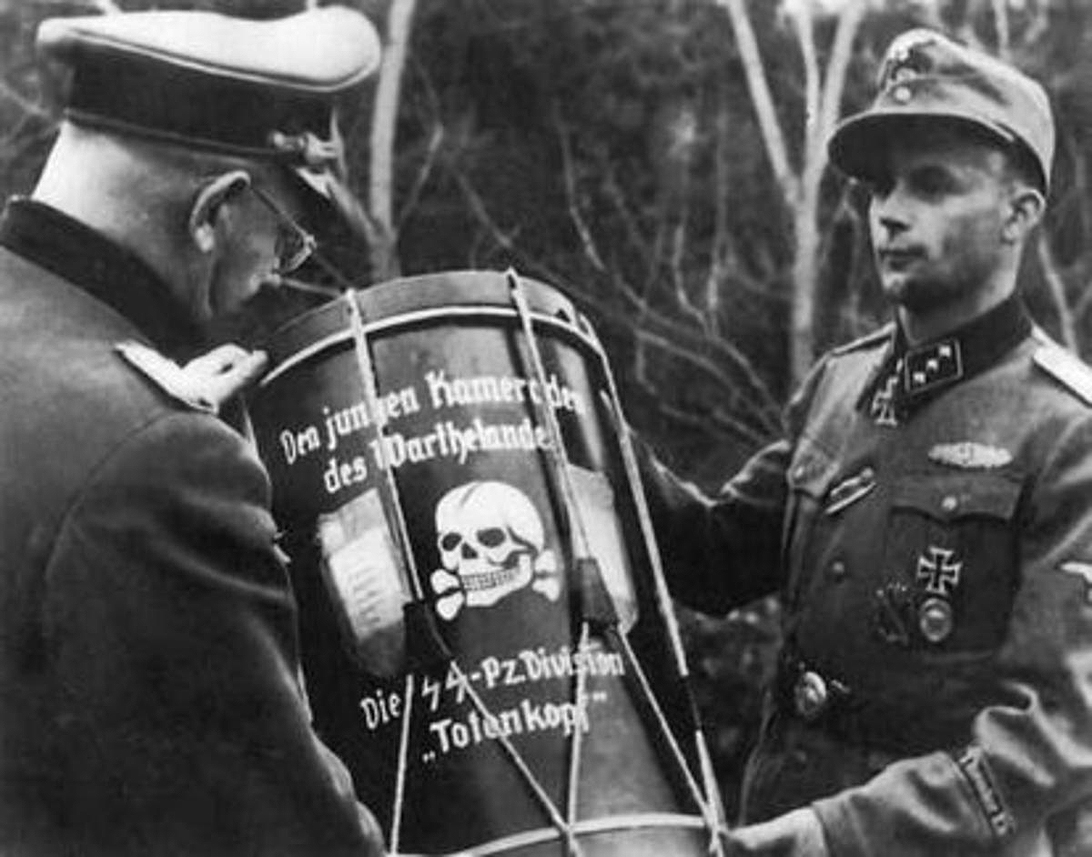
[Above: Cool beyond words.]
What was the end of the war like for you?
Willi: I made it to March 1945 until I was wounded. It was during the great relief effort for Budapest. The plan was to split Ivan and capture the city, rolling up the flanks. He was too strong and at this stage outnumbered us I have heard 10-1. The amount of equipment they had was staggering for me to see.
I was defending a house and set up the gun in a second floor window, we had already stopped one charge by infantry. I went to get a drink from my canteen that had slipped out of my hand. As I stood up to retrieve it a sniper got me. I was hit in the side and it grazed my kidney.
I was quickly moved down and sent to the rear to our field hospital, which was making preparations to move. Later the hospital was shelled and I was hit again. I was sent by train into the Reich and moved to a hospital for care. I was kept in their charge until July of 1945 and saved from Ivan. For me the war was over, as I was hit badly in the leg and lost it.
Ivan attacked Berlin and after a great battle the city fell. They went into the hospitals and showed contrasting behavior. Some units killed, raped and beat anyone they found. Others behaved correctly and humanely. I was lucky to be found by humane Ivans. For many days my nurse hid me in the store room as I did have the tattoo [the SS blood type tattoo-Ed.]
I had sympathetic doctors who gave me passes to present to Ivan to show I was investigated and clear. Americans came later and started asking about my time at the front and service. I was held as a prisoner for a year, but in very comfortable camps. I wish to say I had it well, when so many did not. I was beaten once by a drunken Ivan, and at times smacked around.
As far as they knew, I was no one and had no medals, since I came to the war late I was looked upon as a draftee and so made to fight against my will. Many Germans played this card to avoid prison or persecution. I saw what they were doing with any party members, security men, or SS men. They went away to the east and most all were never heard from again. The rolls of the missing are staggering for the year 1945.
I personally saw two foreign SS volunteers who were shot down. They were part of Wiking, which I was sent to. They were captured and immediately shot down. I saw this from my position while hiding, part of our line was overrun and I was able to hide. I stayed hidden until dark then found my way back to the main line. I reported this to our commander, who brushed me off saying they know, it happens often.
How do you feel about Totenkopf being labeled as a division who committed many war crimes? Do you think the accusations regarding the Waffen-SS are true?
Willi: I have come to understand that during the war many bad things happened, on all sides. It was said by our enemies that we caused all the bad things to happen, we started everything and were responsible for everything that happened to us. I know I can not speak about the early part of the division as I was not there in France or Russia.
What I saw with my own eyes was a front line fighting division of the highest caliber and honor. I would think that if what is said about the division was true, then the old hares would have behaved in a manner proving the Allies are correct. I did not see any of that I can honestly tell you.
I saw men who cared about people, helping the civilians as best they could and respecting property. There was no theft, looting, or assaults on civilians that I ever saw or heard of. I only saw prisoners taken and treated fairly, being given medical care and food. At no time did I ever witness a member of the German Waffen-SS do anything that would bring dishonor to us.
What our former enemies say is nothing but an attempt to hide their own guilt and crimes. Instead of having people look at their camps, their mistreatment, their war crimes, they just point the finger at us and say "here is the criminal." They spent the whole war, and after, going everywhere asking people, whom we forcibly occupied, to tell the truth about us. The people understood if they did they would be seen as collaborators.
I learned it is better to lie to be saved, than to be honest and die. This is what drove many claims against us I believe. The people either saw legitimate reprisals being carried out, or misunderstood what they saw. Or they outright lied to make a name for themselves or to be seen as the opposition to us. In the end they had every reason to make it appear we committed all sorts of crimes against them, forcing them to live in fear and terror.
If they told how it really was they would be arrested and tried as collaborators and supporters. I was told by a Russian woman who was working as a therapist here that they came and killed anyone who was accused of aiding us. The NKVD [Soviet secret police] was given carte blanche to send anyone away or execute them in public. Whole towns were deported and wiped out. Then they just claimed it was Germans who did these things. She told me that people knew not to say anything.
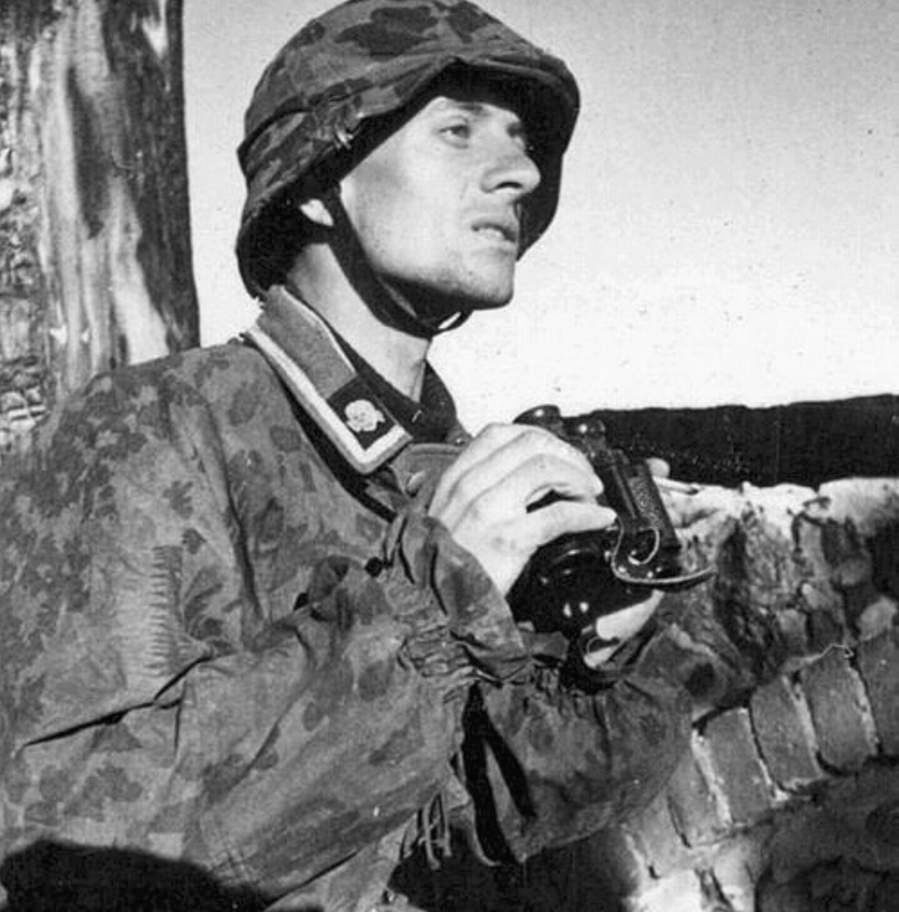
[Above: A soldier of the 'Totenkopf' Division sets his sights on victory.]
[Above: Wilhelm Reinecker, an old warrior of the vaunted Totenkopf Division, died at 89 years old. 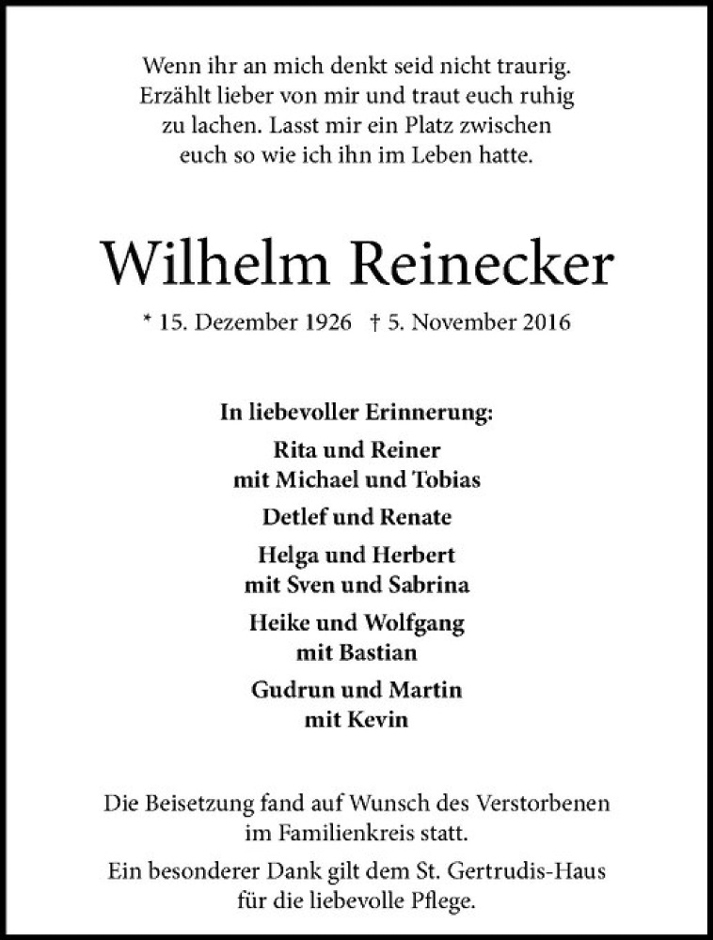
'Wenn ihr an mich denkt seid nicht traurig. Erzählt lieber von mir und traut euch ruhig zu lachen. Lasst mir ein Platz zwischen euch so wie ich ihn im Leben hatte.'
(When you think of me, don't be sad. Rather tell about me and dare to laugh. Leave me a place among you as I had it in life.)]